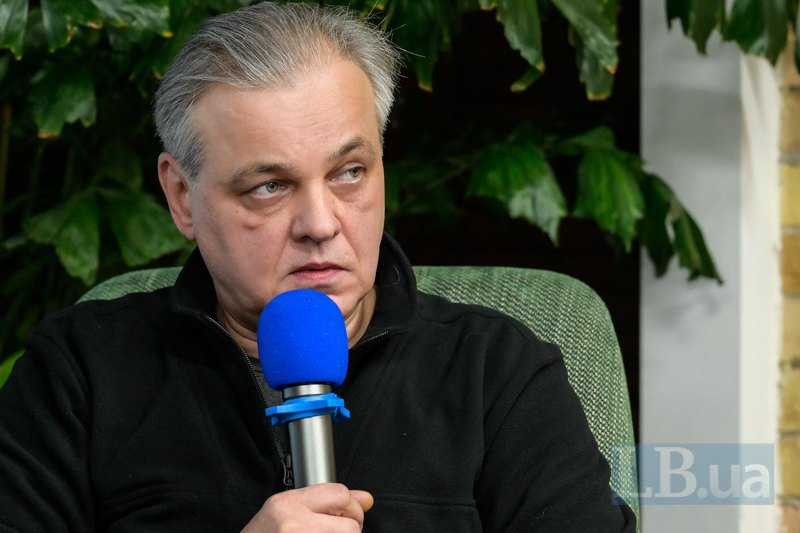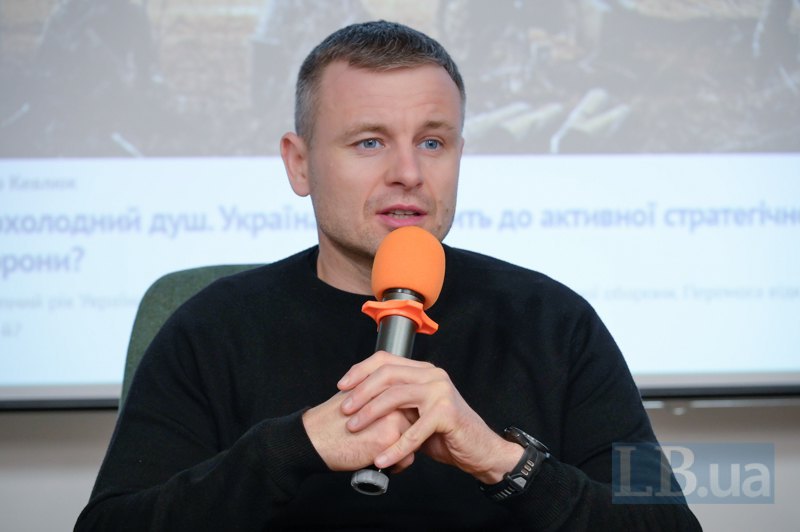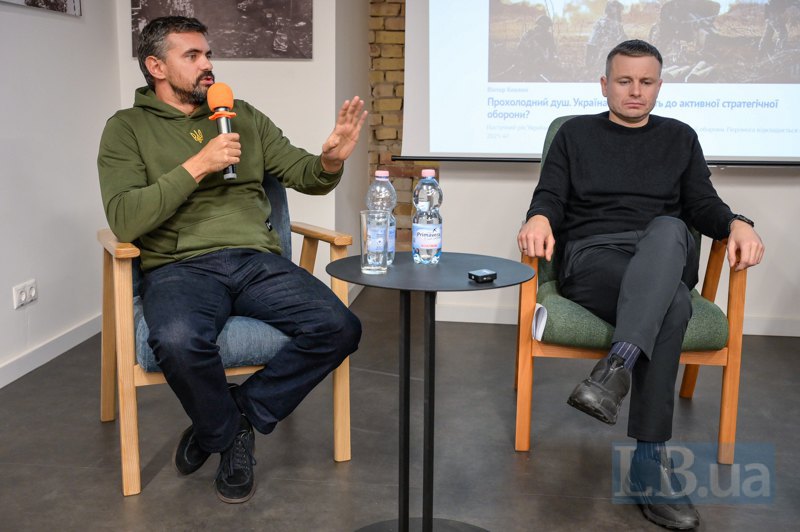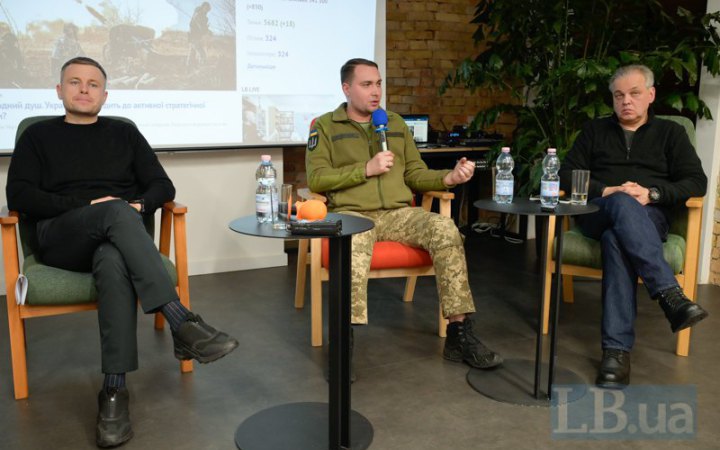According to military intelligence chief Kyrylo Budanov, in the midst of the fighting, one should not even think that it will be possible to avoid mobilisation as too much military force is needed.
"We don't have that many people willing to do anything. Let alone fighting. This is the current situation. There will be losses, and this number must be kept constant. That's why only mobilisation is needed," said Budanov.
However, another issue arises in the context of mobilisation, which is motivation, he added. And he admitted that recently the efficiency of people who have been mobilised, voluntarily or involuntarily, in accordance with the law, has been almost zero.
"This is a complex problem. For me, as a military man, a certain gap is obvious. Unfortunately, most people here, despite shouting 'I am a Ukrainian' and 'Ukraine is above all', have not felt themselves to be citizens of Ukraine. They have not acknowledged that the enemy has seized our territory and that each of us has a sacred duty to defend this country. That's why these 'Lviv cauldrons', 'Polish voivodeship' or whatever appear... Many people do not feel that this is your war. And this is a very deep problem," he explained.
The lack of motivation to fight primarily affects offensive actions, he said.
"An unmotivated person will not attack. They will do everything to prevent this from happening. This is a huge problem. If we don't solve it at least partially (it's impossible to solve it completely, it doesn't even make sense to take it on), we will be on the defensive. To be on the defensive in an open conventional war with Russia is a creeping defeat for us. Unless we solve the issue of motivation, we will not succeed on the battlefield," the intelligence chief said.
The problem can be solved, according to Budanov, with proper social dialogue and explaining.
"We have to admit that in 30 years we have had a big gap in this. We need to have an honest conversation. A significant number of people were not ready to defend their country. And if it is war, it is war, and we should not be afraid of it," Budanov concluded.
Serhiy Rakhmanin, a member of the parliamentary defence committee, also agreed that there is no option of cancelling mobilisation as no country in a state of war would do so. But recruitment can be a nice bonus that will relieve some of the burden.
"In fact, there are effective examples: The 3rd Assault Brigade, Azov, the 24th Aydar Battalion, Khartiya, Kyrylo Oleksiyovych's Main Intelligence Directorate, the Special Operations Forces, and some units of the Airborne Forces. We need to study them and scale them up," the MP suggested.

In his opinion, it is up to experts to find effective solutions for mobilisation.
"In order to find an effective approach to people who will have to put on a uniform and perform combat missions tomorrow, we need to bring together successful volunteers, sociologists, psychologists, journalists, and SMM experts. Perhaps even demographers. It would be good to listen to them too, because it makes no sense to pull a million people out of the economy, and then it will collapse, there will be no taxes, and there will be nothing to arm, feed, and dress this million with.
They should jointly define a methodology, an approach, targeting, if you like, depending on the age limit, on the region of residence, on life experience, and find some methods and approaches so that at least some of the people who will receive a summons tomorrow will not be afraid.
We can't come up with the answer to the question what kind of methodology it should be, so we need to involve different kinds of specialists. You know, the solution to any problem is preceded by a discussion. Even for complex problems, there are simple solutions. But in order for a simple solution to emerge, there must be brainwork, and this work must be done by specialists, not majors from territorial recruitment centres," said Rakhmanin.
Despite clarifying that he is not good in military affairs, Finance Minister Serhiy Marchenko also supported the idea of engaging civilian specialists to solve the problem of mobilisation.

"I <...> have an understanding of the need for civilian control over the processes taking place in the military sphere. People who are ready to show the relevant analytics and decisions that need to be made should answer the question of how to improve the efficiency of any process or what is wrong with mobilisation," the minister said.
"I'm going to say some pretty unpopular things. The power of the military is quite problematic. In any war, from day one, all power belongs to the military. The decisions they make are motivated by the military campaign. We are not unique in this regard. All countries that have been at war have fallen into this trap, when the military machine feeds on itself. Any story can be justified, there is no absolutely objective information. There is an established reality.
I really lack objective factors on how to reasonably change this campaign (mobilisation - Ed.). Because, for example, the work of some units using UAVs is impressive. Scaling up the work of these units is what we need to do. I'm not getting into the traditional way of warfare, but there are many questions about whether we need what we want, or maybe we should change our focus and create conditions for a war that will allow us to win," Marchenko added.
According to EFI Group supervisory board chairman and businessman Ihor Liski, a responsible attitude towards soldiers can be one of the factors of effective mobilisation.

"Ukraine, if it remains a small Soviet army, will never be able to defeat a large Soviet army. We have to change, we have to become effective. And this effectiveness must be built on appropriate decision-making and a very responsible attitude towards the soldier. And it has to be transmitted from top to bottom," said Liski.
"Why is it difficult to mobilise people now? Because everyone understands that they are fighting in reflection. But losses for Russians are not a factor of pain threshold. Plus, there are five times more of them. We cannot respond in kind. There must be a different approach. We need to broadcast that Ukraine takes care of its soldiers, from communication to reality. To be, not to appear. This factor of caring for the soldier from the very top will ultimately have a positive impact on mobilisation," the businessman sugested.
Plus, he added, this war should not be the war of the early 20th century, but an effective war, based as much as possible on logistics, modern weapons, and the economy. And this is also a factor.
"But it feels like the Cabinet of Ministers and the Verkhovna Rada are living in a bubble and wondering why society does not support the war. Because you are in an echo chamber. On the contrary, you need to set tasks and talk. Do you remember the British operation when the fishing fleet essentially saved the army? Where is this communication with regard to arms production? Where is it? I want to hear and see it," the businessman concluded.









